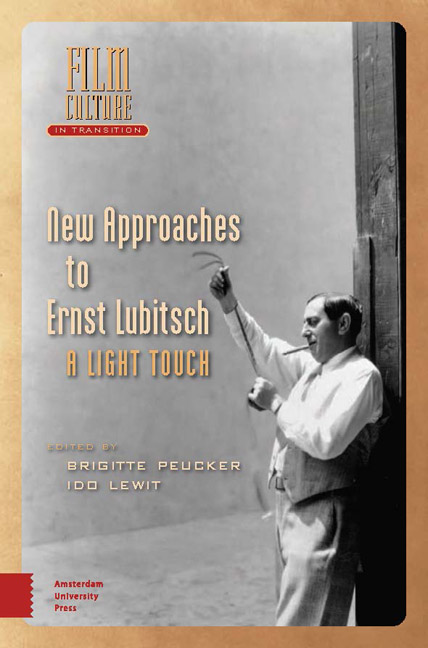13 - Ernst Lubitsch, Censored and Censoring
Published online by Cambridge University Press: 16 April 2024
Summary
Abstract
This essay argues that the inferential aspects of Ernst Lubitsch's style, often taken as a way of dealing with censorable material, might, in fact, achieve a kind of censorship in themselves. With a focus on a distinctive stylistic trope that became common in his 1930s films, the essay explores how style creates an ambiguity around character emotion in four films. With an extended analysis of how this trope functions in Angel (1937), the essay claims a modernist play on perception unusual in Hollywood classical cinema.
Keywords: censorship, romantic comedy, thematic music, visual style, ambiguity of perception, modernism
A woman who finds herself in a boring marriage to a British diplomat travels to Paris incognito as Mrs. Braun to meet up with an old friend, a Russian emigre Duchess, who now runs a gambling house-cum-bordello and helps wealthy men make assignations with women appropriate to their class, but in need of cash. There Mrs. Braun encounters and spends a romantic evening with a man who is instantly smitten with her, a man she possibly has sex with. Without ever identifying herself, without saying goodbye, she leaves the man and returns to her married life in England.
This, then, is the opening sequence of Ernst Lubitsch's 1937 Angel, a “comedy-drama” as some contemporary reviews referred to it, albeit a genre uncertainty I will want to return to. This was also a film produced at the height of the Production Code's enforced restrictions on Hollywood films. Angel was Lubitsch's first movie since The Merry Widow (Lubitsch, 1934) three years earlier, and the first to be produced entirely under the newly enforced Production Code Administration. But censorship was a condition of creation throughout much of Lubitsch's career.
During his filmmaking years in Germany, censorship existed in a variety of ways, on a local level enforced by the police, then nationally by the military during World War I, banned nationally in 1918 but often continuing on a local level, and, finally, in 1920, with a national board of censorship that reviewed films for release.
- Type
- Chapter
- Information
- New Approaches to Ernst LubitschA Light Touch, pp. 247 - 266Publisher: Amsterdam University PressPrint publication year: 2024



